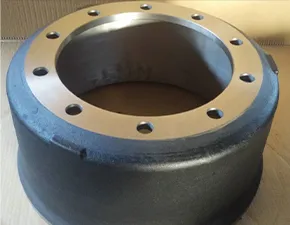
-
 Afrikaans
Afrikaans -
 Albanian
Albanian -
 Amharic
Amharic -
 Arabic
Arabic -
 Armenian
Armenian -
 Azerbaijani
Azerbaijani -
 Basque
Basque -
 Belarusian
Belarusian -
 Bengali
Bengali -
 Bosnian
Bosnian -
 Bulgarian
Bulgarian -
 Catalan
Catalan -
 Cebuano
Cebuano -
 Corsican
Corsican -
 Croatian
Croatian -
 Czech
Czech -
 Danish
Danish -
 Dutch
Dutch -
 Inggris
Inggris -
 Esperanto
Esperanto -
 Estonian
Estonian -
 Finnish
Finnish -
 French
French -
 Frisian
Frisian -
 Galician
Galician -
 Georgian
Georgian -
 German
German -
 Greek
Greek -
 Gujarati
Gujarati -
 Haitian Creole
Haitian Creole -
 hausa
hausa -
 hawaiian
hawaiian -
 Hebrew
Hebrew -
 Hindi
Hindi -
 Miao
Miao -
 Hungarian
Hungarian -
 Icelandic
Icelandic -
 igbo
igbo -
 Indonesian
Indonesian -
 irish
irish -
 Italian
Italian -
 Japanese
Japanese -
 Javanese
Javanese -
 Kannada
Kannada -
 kazakh
kazakh -
 Khmer
Khmer -
 Rwandese
Rwandese -
 Korean
Korean -
 Kurdish
Kurdish -
 Kyrgyz
Kyrgyz -
 Lao
Lao -
 Latin
Latin -
 Latvian
Latvian -
 Lithuanian
Lithuanian -
 Luxembourgish
Luxembourgish -
 Macedonian
Macedonian -
 Malgashi
Malgashi -
 Malay
Malay -
 Malayalam
Malayalam -
 Maltese
Maltese -
 Maori
Maori -
 Marathi
Marathi -
 Mongolian
Mongolian -
 Myanmar
Myanmar -
 Nepali
Nepali -
 Norwegian
Norwegian -
 Norwegian
Norwegian -
 Occitan
Occitan -
 Pashto
Pashto -
 Persian
Persian -
 Polish
Polish -
 Portuguese
Portuguese -
 Punjabi
Punjabi -
 Romanian
Romanian -
 Russian
Russian -
 Samoan
Samoan -
 Scottish Gaelic
Scottish Gaelic -
 Serbian
Serbian -
 Sesotho
Sesotho -
 Shona
Shona -
 Sindhi
Sindhi -
 Sinhala
Sinhala -
 Slovak
Slovak -
 Slovenian
Slovenian -
 Somali
Somali -
 Spanish
Spanish -
 Sundanese
Sundanese -
 Swahili
Swahili -
 Swedish
Swedish -
 Tagalog
Tagalog -
 Tajik
Tajik -
 Tamil
Tamil -
 Tatar
Tatar -
 Telugu
Telugu -
 Thai
Thai -
 Turkish
Turkish -
 Turkmen
Turkmen -
 Ukrainian
Ukrainian -
 Urdu
Urdu -
 Uighur
Uighur -
 Uzbek
Uzbek -
 Vietnamese
Vietnamese -
 Welsh
Welsh -
 Bantu
Bantu -
 Yiddish
Yiddish -
 Yoruba
Yoruba -
 Zulu
Zulu
how to take a drum brake off
How to Take a Drum Brake Off A Step-by-Step Guide
Drum brakes are a common type of brake system found in many vehicles, especially older models. Understanding how to remove a drum brake is essential for any DIY mechanic or car enthusiast looking to perform routine maintenance or repairs. Here’s a step-by-step guide to help you take a drum brake off safely and effectively.
Tools and Materials Needed
Before you begin, make sure you have the following tools and materials on hand
- Jack and jack stands - Lug wrench - Brake cleaner - Screwdriver (flathead) - Pliers - Torque wrench - Replacement brake components (if necessary) - Safety goggles and gloves
Step 1 Ensure Safety
First and foremost, ensure your safety. Park your vehicle on a flat, stable surface and engage the parking brake. If you are working on the rear brakes, it is advisable to chock the front wheels to prevent any movement.
Step 2 Loosen the Lug Nuts
Using a lug wrench, slightly loosen the lug nuts of the wheel with the drum brake you want to remove. Do this before raising the vehicle off the ground to make it easier. Avoid removing them completely at this stage.
Step 3 Lift the Vehicle
Use a jack to lift the vehicle and then place the jack stands securely under the vehicle to support it
. Always ensure that the vehicle is stable before proceeding.Step 4 Remove the Wheel
Now that the vehicle is securely lifted, remove the loosened lug nuts entirely and take the wheel off. This will expose the drum brake assembly.
how to take a drum brake off

Step 5 Inspect the Drum
Take a moment to inspect the brake drum for any visible damage or excessive wear. If the drum appears to be in good condition, you can proceed with removal; if not, it may need to be replaced.
Step 6 Remove the Drum
Drum brakes are typically held in place by either screws or clips. If your drum is held in place by screws, use a screwdriver to remove them. If there are no visible fasteners, the drum might be stuck due to the brake shoes being pressed against it. In this case, you can gently tap the drum with a rubber mallet or tightening a couple of bolts on the drum's threaded holes to ease its removal.
Step 7 Disconnect the Brake Components
Once the drum is free, carefully pull it off. At this point, you may want to disconnect the brake shoe springs or any other components if you plan to replace them. Use pliers to remove the springs carefully and ensure you remember the configuration for reassembly later.
Step 8 Clean and Replace Parts
Now is a great time to clean any dust and debris from the brake assembly with brake cleaner. If any parts appear worn or damaged, replace them as necessary.
Step 9 Reassemble
Once you’ve completed your inspection, cleaning, and replacements, reverse the steps to reassemble the brake components. Place the drum back on, reconnect any components, and then reattach the wheel.
Step 10 Lower the Vehicle
Finally, carefully lower the vehicle down, remove the jack stands, and tighten the lug nuts securely in a crisscross pattern to ensure even pressure.
Remember, proper maintenance is critical for your vehicle's braking system. If you're unsure about any step in the process, consult your vehicle’s service manual or seek help from a professional mechanic.
-
Rear Drum Brakes Maintenance TipsKabarAug.04,2025
-
Key Components Affecting Brake Drum FunctionKabarAug.04,2025
-
Important Inspection for Truck Drum BrakeKabarAug.04,2025
-
How to Prepare for Changing Rear Drum BrakesKabarAug.04,2025
-
Essential Tools for Cleaning Drum Brakes ProperlyKabarAug.04,2025
-
Brake Drum Function GuideKabarAug.04,2025
-
Safety Features of Red Brake DrumsKabarAug.01,2025
